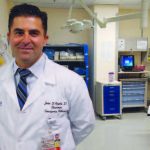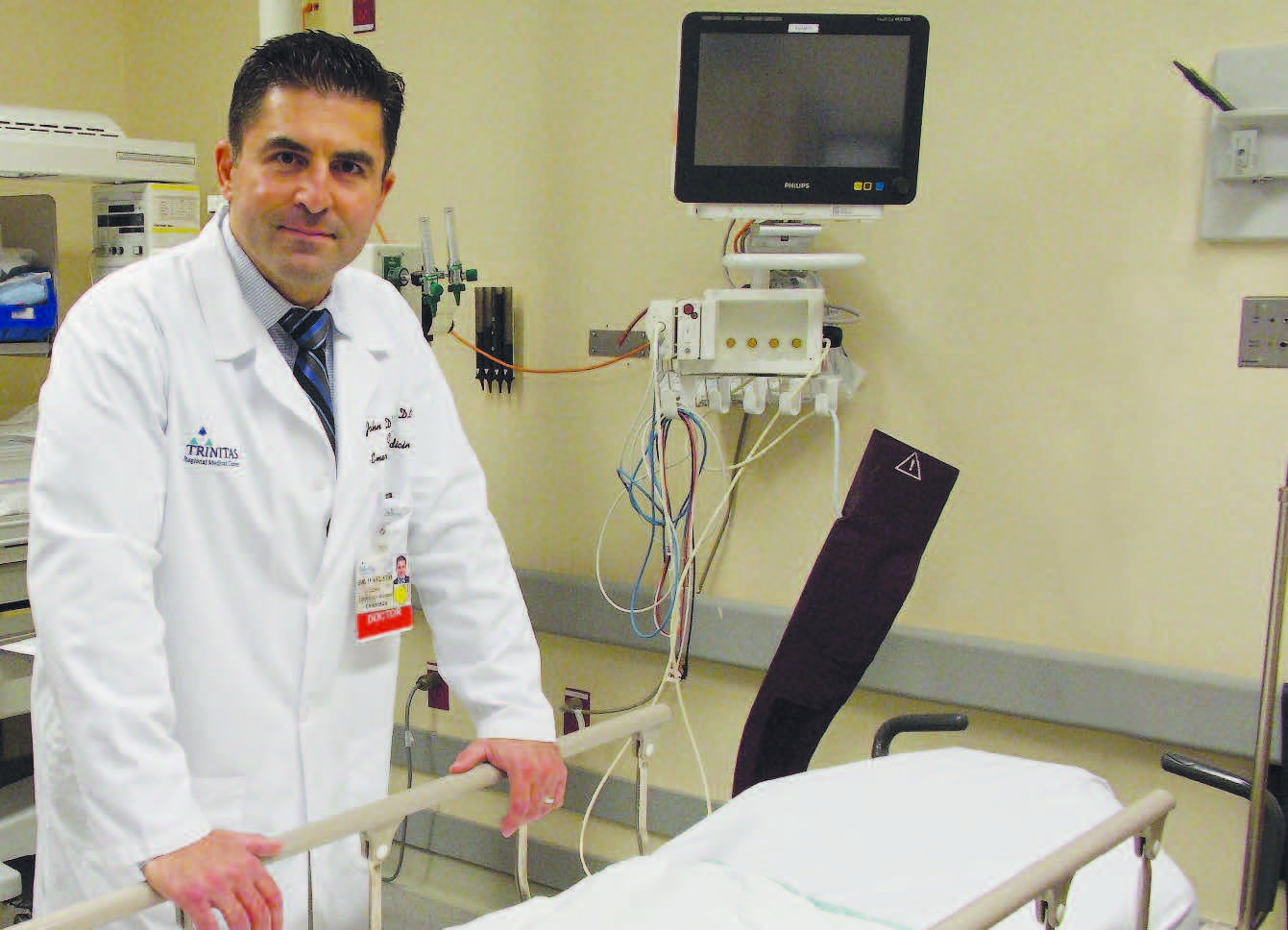Emergencies can arise any time, day or night, any time of the year. By definition, you never know when you, a friend, relative or co-worker—or a complete stranger—will need emergency assistance…and if you will be the one who has to make the call. In 2015, the number of 911 calls made in the U.S. is likely to top a quarter-billion. The number of emergency calls has continued to rise as cell phones become more prevalent, which puts a lot of pressure on the 911 operators who field those calls—especially in a medical emergency. To make sure you get the help you need fast, the key is to remain calm and be precise. Dr. John D’Angelo, Chairman of TRMC’s Emergency Medicine Department, answers EDGE readers’ questions on emergency calls.
When should I call 911?
You should call 911 for any emergency situation, defined as an injury to a person, animal or property. The emergency situation should be called in while in progress. It’s important to place that call as quickly as possible as the emergency is happening. You should not wait to call 911 after an event has occurred. If someone is not breathing, unconscious, bleeding profusely, seizing or convulsing or experiencing some other life-threatening situation, make the call—even of you are in doubt.
What medical emergencies in adults are “time-sensitive” and should generate a 911 call?
Let’s talk a little bit about “alarming symptoms.” If you or someone around you experiences chest pain, shortness of breath, weakness in an arm or leg, or a speech deficit, you should call 911. Heart attacks and strokes are especially time-sensitive disease entities. Heart attack and stroke patients who present early to the Emergency Department fare much better than those who come in after a long delay. Abdominal pain in the elderly is another time-sensitive disease. The longer such pain in the elderly goes undifferentiated, the greater the likelihood for a poor outcome.
How about children? When should I call 911 for them?
Alarming symptoms for children are generally respiratory in nature. Alarming signs observed by a parent or caretaker include a child with nasal flaring, grunting, retractions, and new or refractory wheezing. All warrant a call to 911. Ingestions of any possible harmful or toxic solutions or products are another reason to call 911. In this situation, I recommend you also place a call to a poison control center. The New Jersey Poison Center number is 1–800–222–1222.
What should I bring to the ER?
In the case of a child who has swallowed something harmful, bring the container or a picture of the ingested agent with you to the emergency department. This is important because all caustics—such as household cleaners, presciption and over-the-counter medications—are not created equally. The poison center, as well as your emergency providers, need as much information as possible to adequately explore an effective antidote. Also, it is imperative to obtain as much information as possible from caregivers regarding the time of ingestion and quantity consumed.
Who answers my 911 call?
It really depends on your geographic location. When you call 911, your call will be fielded by either a Public Safety Answering Point (PSAP) or a Public Safety Dispatch Point (PSDP). The 911 call-taker will ask you, “What’s your emergency…?” They will then handle the call themselves or transfer you to the local Emergency Dispatch Center that can best manage the emergency. In New Jersey, most 911 calls are handled by the local municipalities.
What other questions should I be prepared to answer when I call 911?
Where is the emergency taking place? Who is involved in the emergency? When did the emergency occur? The key to answering these questions is to be concise. The Emergency Medical Dispatcher is listening for what service a caller needs. They will take the information you give them and connect you with the appropriate dispatch unit—Fire, Emergency Medical Services or Police.
What if the person calling 911 is not fluent in English?
Municipalities actually contract with multilingual vendors who can assist with any language.
Does it make a difference if I call 911 from a land line or my cell phone?
It could. A land line ensures rapid dispatch to your exact location. If you call from a cell phone, your call may be picked up by the closest tower, then rerouted or transferred to the local municipality capable of handling the call. If possible, use a land line.
Why do you have to “stay on the line” while waiting for help to arrive?
Emergency Medical Dispatchers will assist you with pre-arrival instructions. They may assist with CPR instructions, basic life support, or fire safety. They will also help you to remain calm until help arrives, or answer questions if the emergency situation suddenly changes.
COLOR ME READY
You never know if a child will be the person making the call in a 911 situation. The state of New Jersey’s Department of Human Services actually offers a coloring book with simple language and images
for children, showing them how to respond to emergencies. You can download this helpful teaching tool at state.nj.us/911/kids/book/911book.pdf.
 Do you have a hot topic for Dr. D’Angelo and his Trinitas ER team?
Do you have a hot topic for Dr. D’Angelo and his Trinitas ER team?
Submit your questions to AskDrD@edgemagonline.com
Editor’s Note: John D’Angelo, DO, is the Chairman of Emergency Medicine at Trinitas Regional Medical Center. He has been instrumental in introducing key emergency medical protocols at Trinitas, including the life-saving Code STemi, which significantly reduces the amount of time it takes for cardiac patients to move from the emergency setting to the cardiac catheterization lab for treatment.





